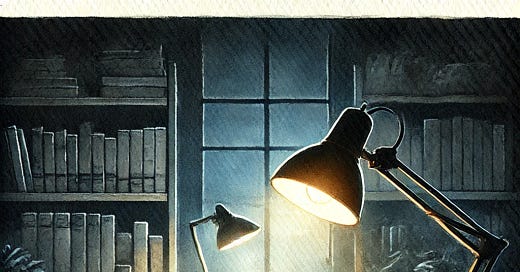Two years ago, I stayed late at the office, hunched over an Excel spreadsheet that wasn't mine.
My colleague Anne** had once again offloaded her work onto my desk with a helpless smile. 'I just can't figure out Excel,' she'd say, and I'd nod, gritting my teeth and swallowing the words I desperately wanted to shout: 'That's not my f***ing problem.'
The thing is, saying “No" was like jumping off a cliff. So I stayed on safer ground, doing her work and mine, watching her leave on time while I burned the midnight oil.
At home, my girlfriend would ask, 'Why don't you just say no?' and I'd feel a hot flush of shame. I felt like a coward.
I was a chronic yes-sayer, and it was killing my self-respect.
Saying no, I've come to learn, is an act of courage that cuts against our deepest social instincts. When we say no, we risk conflict. We risk rejection. We risk being cast out from the very group that, for our ancestors, meant the difference between survival and death.
Our monkey brains are still wired to seek acceptance at all costs, to avoid the existential threat of social isolation.
Every 'no' is a step away from the safety of the tribe.
But courage alone isn't enough. Saying no is a skill because comfort with discomfort only comes through repetition—each 'no' builds resilience for the next, like a muscle being strengthened at the gym. And I had let mine waste away, always reaching for the easy 'yes' instead of flexing the harder 'no'.
So how do you practise something that goes against your instinct?
The answer came from an unlikely source, exposure therapy.
The principle of exposure therapy is simple: the more you expose yourself to situations that cause fear, the more acclimatised you become to it. You start with low stake scenarios and build up gradually to higher stakes.
If you are scared of spiders, you’d first start looking at cartoon drawings of spiders, then progress to realistic images. Next you’ll be watching videos. Your anxiety reduces until eventually you’ll have the spider crawling on your hand.
And that’s what I did.
I started exercising 'no' every day. I began with low-stakes, where the consequences were minimal, like rejecting a friend's movie recommendation (sorry, I’d rather claw my eyes out with a plastic spoon than watch Inside Out 2) or refusing to split the best korean chicken wings I’ve ever had in my life with my girlfriend (I was hungry and cranky, she forgave me).
Each “no” felt like a tiny rebellion. Each “no” a rep, chipping away at years of people pleasing.
Then I upped the ante.
I tend to keep my mouth shut at family & friend dinners. I can’t be bothered with the aggro. Now, I saw this as my playground to grow. The next UK PM? Just another actor cosplaying a bureaucrat. Brexit? Will be considered a stroke of genius in the next 20 years. AI? If you don’t up-skill you should lose your job.
Jaws dropped. Forks clattered. My friend's face turned a shade of red I'd never seen before. For once in my life, I wasn't just nodding along. I was in the arena, my voice heard, my opinions—however controversial—out in the open. It was terrifying. It was liberating. It was growth.
I knew something special was brewing when the barista mixed up my cappuccino with a latte. Pre-no-practice me would've just accepted the wrong drink, burning with quiet resentment. But new me? I caught the barista's eye. "Excuse me, I ordered a cappuccino, not a latte." My voice quavered, but I'd done it. The world didn't end. The barista didn't cry.
And I got my damn cappuccino.
Over time, I've reached a place where I can say no at work with the ease of a Steve Irwin handling a tarantula.
I've learned the art of the 'no' - the soft landing, the 'not yet', the cushioned refusal. The key to all of this was recognizing that saying no isn't an innate trait, but a skill to be developed.
By viewing my inability to say no as a skill issue, I gave myself permission to be imperfect, to practise in different scenarios and to grow. Now, I can confidently push back on ideas, challenge assumptions, and stand my ground without flinching.
It's like I've developed an immunity to confrontation and the fear of rejection.
If Anne came to me now with that Excel spreadsheet? "I'm sorry, but I can't take that on. I have my own deadlines to meet." Simple, direct, and guilt-free.
But here's the kicker: saying no has made me much more productive at work, more effective at expressing my desires and most of all, a higher level of internal gooey self respect.
By saying no, I've given a clear signal that I value myself and my time. It turns out that the path to being valued by others starts with valuing yourself.
However, nothing’s ever rosy in life. I did go through a phase where I probably seemed contrarian, disagreeable for the sake of it.
But I think you have to reach that point of overcompensation to find the right balance. It's like swinging a pendulum - you have to go too far in the other direction before you can settle in the middle. The key, though, isn't perfection. It's motion. The most important step is the first one: get that pendulum moving. Start small, start messy, start anywhere. Because a pendulum in motion, no matter how erratic, will eventually find its rhythm.
But a pendulum at rest? It's just dead weight.
** All names changed. Anne wasn’t bad.




